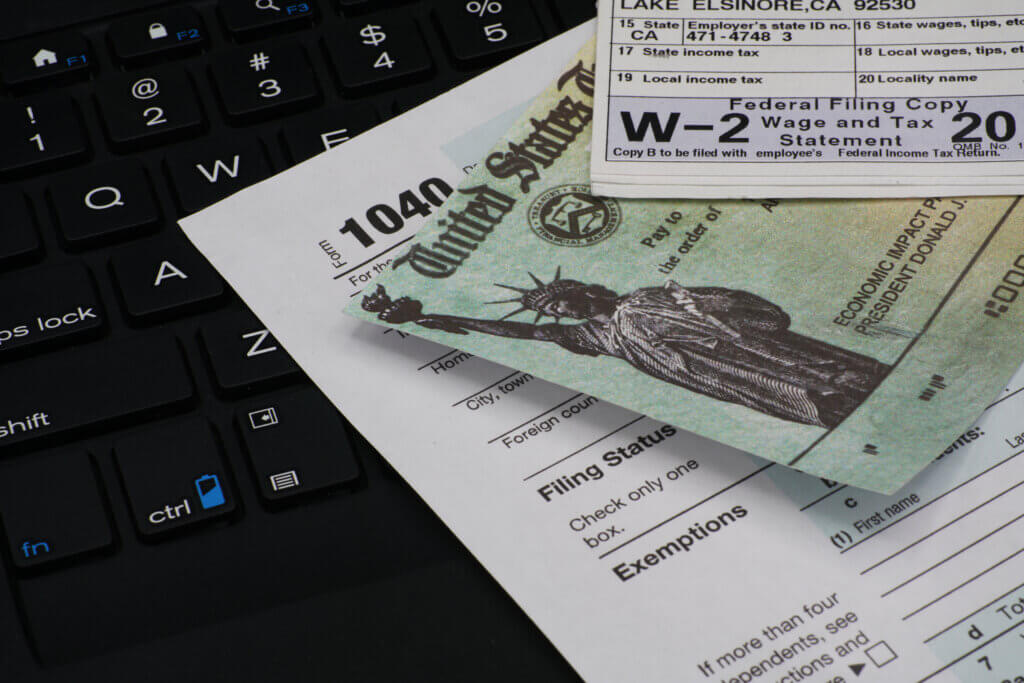No one wakes up and says, “Yes, I get to do my taxes today!” For most Americans, tax time is not associated with fun times. It is more associated with a feeling of dread. Thankfully, there are ways to make it less painful and more profitable. Taxes are needed to provide certain services for our nation. But, just because taxes are needed and required, does not mean you have to overpay or not be as educated as possible regarding deductions and credits.
Prepare for tax season as early as possible by choosing a preparer or getting ready to DIY, start gathering all documents and information earlier, and learn about new tax credits and deductions. Taxpayers typically must e-file or mail in Federal and State returns by midnight on April 15th to avoid penalties. Do not put off the inevitable – start preparing now.
Hire a Professional or DIY?
Depending on your financial situation, you need to decide on hiring a professional tax preparer or doing your own tax preparation. Federal and State governments do not mandate hiring a professional; they only require you to file appropriately and on time. When deciding, list the pros and cons of hiring a professional versus doing it yourself. The costs for a professional will vary, depending on your return; the more complicated, the higher the costs. Decide whether the cost outweighs the benefits. Time is a valuable commodity, and so is ensuring you take advantage of all deductions and credits.
Collect Tax Documents
By the end of January, you should have received tax documents from employers, brokerage firms, and others you did business with. Employers will send the documents in the mail or electronically. They include a W-2 for a salaried worker and 1099s for contract workers or freelancers.
Here is a link for income-related forms found on the IRS website. Ensuring and verifying you have all the needed documents will make filing for you or your tax preparer more efficient.
Deductions and Credits – Top 5 Deductions People Miss
Take the standard deduction or itemize deductions? Taxes are essential for basic government operations, but they are not designed to make you pay more than legally required. Taking the time to see all deductions and credits you are qualified to receive. It could be worth it.
#1 – Non-Cash Distributions
Did you donate anything? Most people know that any cash donations are considered charitable contributions and, therefore, can be deducted. However, any non-cash charitable contributions can be deducted as well. For example, a used sofa you donate to Goodwill can be counted as a contribution. Look into what you can and can not deduct.
#2 – Points on Refinancing
Did you refinance your home? If you refinanced your home, you may have paid points to get the lower rate. These points can be amortized over the life of the new loan, with the annual depreciation amount deductible each year. Additionally, any unamortized points paid on old financing are fully deductible in the year of the new refinancing.
#3 – Health Insurance Premiums
Are you self-employed? You may deduct 100% of your health insurance premiums as long as any other employer-sponsored health plan does not cover you. Additionally, for those who are not self-employed, you may still deduct your health insurance premiums; however, you must reach the 7.5% medical expense floor for it to be a deductible expense. Check into it. 🙂
#4 – Education Credits
The Lifetime Learning Credit allows additional credits for full-time students in higher education classes. See if you qualify for these credits.
#5 – Educator Expenses
Are a qualified educator, if so, you can deduct up to $250 above the line for purchasing approved materials. Qualifying materials include books, supplies, computer equipment and more. Check out the list to see what you can legally right off.
Tax Assistance for Veterans
AODFCU is committed to providing additional services for veterans and their families. We appreciate your service and your commitment. The Internal Revenue Service (IRS) works with community and government partners to provide timely federal tax-related information to veterans about tax credits and benefits, free tax preparation, and asset-building opportunities. Here are some links to help you navigate the upcoming tax season.
Free Tax Preparation Services
Each year, millions of people have their taxes prepared for free by IRS-certified volunteers. The Volunteer Income Tax Assistance and Tax Counseling has helped people for more than 40 years. Over 1.3 million free tax returns have been prepared for Veterans since the inception of the MOU at nearly 8,000 free tax preparation sites across the country.
Earned Income Tax Credit
Many Veterans are eligible for various tax credits, including the Earned Income Tax Credit, a refundable federal income tax credit for low-to moderate-income workers and their families.
VA Disability Benefits
Disability benefits received from the VA should not be included in your gross income. Some of the payments which are considered disability benefits include:
Disability compensation and pension payments for disabilities paid either to Veterans or their families.
Grants for homes designed for wheelchair living.
Grants for motor vehicles for Veterans who lost their sight or the use of their limbs, or Benefits under a dependent-care assistance program.
Disabled veterans may be eligible to claim a federal tax refund based on the following:
An increase in the veteran’s percentage of disability from the Department of Veterans Affairs (which may include a retroactive determination) or
The combat-disabled veteran applying for and being granted Combat-Related Special Compensation after an award for Concurrent Retirement and Disability
There are many services regarding benefits for veterans. See if you qualify and start taking advantage of the benefits provided.
https://www.irs.gov/individuals/military/special-tax-considerations-for-veterans
Taxes are one of the two things you can not avoid, but you can be more prepared and proactive. By being educated, you can make this upcoming tax season easier and less stressful.
*Insured by NCUA. Certain Restrictions May Apply.
For more information, visit MyCreditUnion.go

